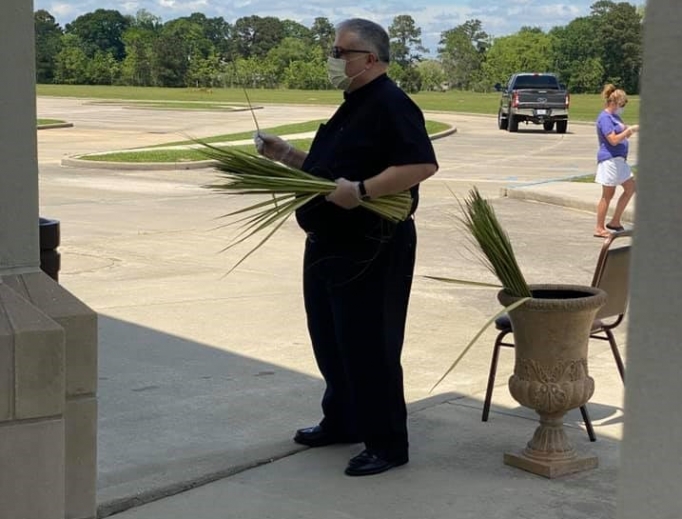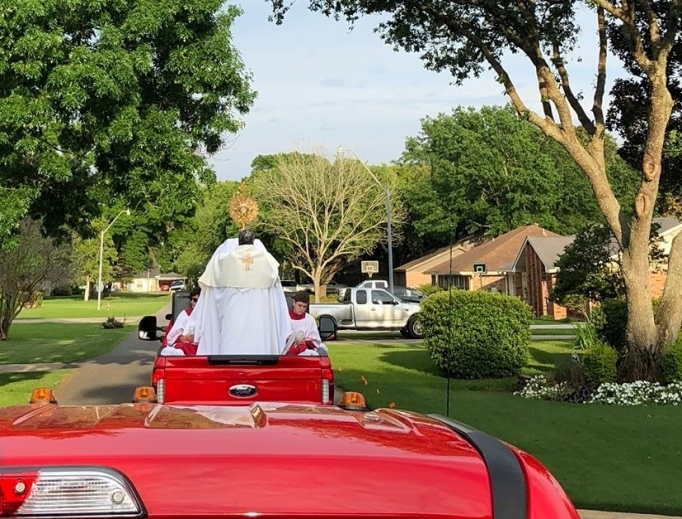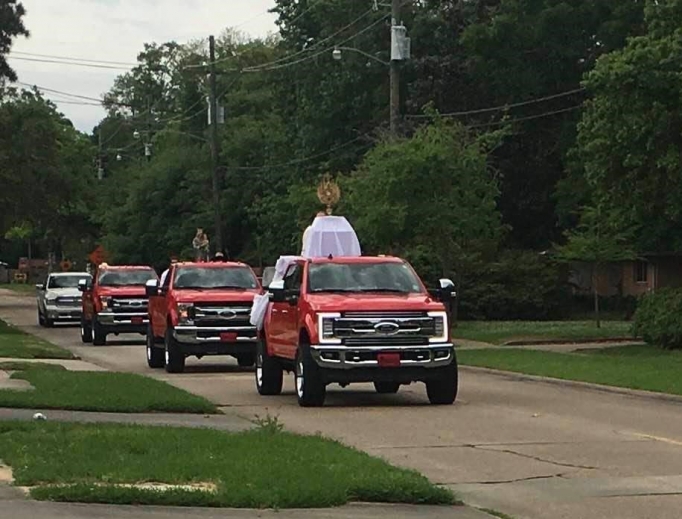Catholic Bishops’ Coronavirus Responses Will Not Long Be Forgotten
COMMENTARY: When everything was shut down, some of our spiritual fathers seemed a little too eager to accept, and at times even exceed, the demands made by civil authorities.

“The public will not forget what your business says and does during this crisis.”
I heard this sage advice at the beginning of the coronavirus shutdown from a friend who is an advertising professional. Those words apply to me, as the president of a nonprofit organization. And they apply to Church leaders.
Permit me to say. “Reverend fathers, the public will remember your words and actions during this crisis for a long time to come.”
Allow me to illustrate with a pair of contrasts.
Some clergy closed their churches reluctantly.
In my home Diocese of Lake Charles in Louisiana, Bishop Glen Provost suspended the public celebration of Mass with great reluctance. I was in the church at 6:30am Mass on the feast of St. Patrick when we heard the pastor read the bishop’s letter. The bishop and the pastor were obviously heartbroken. We all gasped but were not really surprised. Lake Charles was among the last places to suspend public worship.
The decree was carefully written and attuned to the sensibilities of the people. People learned that the obligation to attend Sunday Mass was temporarily dispensed. They learned that receiving Holy Communion would not be among the “usual conditions” for receiving a plenary indulgence each day for the duration of the suspension of public Masses. Bishop Provost knew that people would be concerned about these matters. He anticipated his parishioners’ questions and answered them in advance. The sacrament of penance was never suspended or limited, nor was adoration of the Blessed Sacrament.
The clergy stepped up to the plate with creative ways of making Christ present to us. They provided daily livestreamed Masses and drive-up Palm Sunday celebrations. Children made their first Holy Communions and had May crownings.

Several priests drove the Blessed Sacrament around their parish neighborhoods. For instance, the clergy of Our Lady, Queen of Heaven Church rode in the beds of three bright-red pickup trucks. The pastor was in one truck, holding the monstrance, while the other priest and deacon held statues. They drove through the entire parish locale, slowly enough for people to come out of their homes and kneel and pray as Our Lord passed by.
These men spent nine hours in the back of those pickup trucks. To put this in perspective, driving east at highway speeds down Interstate 10 for nine hours would bring you to Tallahassee, Florida. Drive north for nine hours from Lake Charles and you’d be in Joplin, Missouri. Drive south, and you’d end up in Monterrey, Mexico. These priests knocked themselves out for their flock.

Do you think the people noticed? You bet! They came out of their houses to kneel on the street as Our Lord fully present in the Eucharist passed by. They prayed the Rosary. They created a “neighborhood Stations of the Cross,” with different houses representing each station, during Holy Week.
People throughout the diocese showed their appreciation to the clergy through cards and letters and chalk messaging on the church parking lot and drive-by “thank you” parades.

The leadership of the bishop supported the innovations of the clergy. The people showed their appreciation of their clergy and their bishop. This created a “virtuous cycle,” an upward spiral of mutual support, with everyone united by the love of Jesus.
Some bishops seemed a little too eager to close.
In other dioceses around the country, the people were not so lucky. Some bishops suspended not only public celebration of the Mass, but other sacraments, as well. Some dioceses issued confusing statements about the availability of the sacraments.
In fact, some of these directives were so carelessly written that canon lawyers had to jump in and try to clarify matters. Father Raymond de Souza wrote not one but two columns on the subject in the Register. Noted canonist Ed Peters commented on the overall mess:
“That a bishop could purport to authorize the enunciation of sacramental form for anointing by a cleric and the execution of the sacramental matter by a hospital worker gives some insight into what kind of challenges confront sound pastors and canonists these days. But, while that bizarre idea was shot down in a few hours thanks to the internet, a new mess has taken its place, one whereby a bishop thinks he can ‘suspend’ the celebration of the sacrament of anointing in times of greatest need!”
And the Catholic News Agency published a lengthy piece that included this subtle, yet pointed, rebuke:
“While no serious canonists question the bishop’s right — even prudence — to suspend the public celebration of the Mass during an emergency, the liceity of other suspensions is decidedly less clear.”
Apart from the confusion about canon law, these directives created unnecessary doubts and concerns in people's minds. What were the men in the chanceries thinking? Didn’t it occur to them that people would hunger for the sacraments? Were they unaware that the people of God would want clarity about what was required, forbidden and permitted, not to mention some empathy for the spiritual isolation that depravation of the sacraments can cause? These bishops have caused unnecessary pain to their priests and parishioners. And the most faithful, the most devout are the very people who are most upset. These are the very sorts of “public relations” problems that my friend in advertising warned us about.
I accuse no one of anything here. I merely report what I have observed. The people in these dioceses are in agony. What they see is this: While retail shops, gyms, and recreation outfits have gone to lengths to creatively respond to the needs of their customers, some bishops seemed just a little too eager to accept, and at times even exceed, extreme demands made by civil authorities. There seems to be just a little too much overlap with these bishops and those with reputations for turning a blind eye to Church teaching on sexual morality. And there seems to be just a little too little concern for the salvation of souls in these dioceses.
As I say, I make no accusations. I simply report. A vicious cycle is now operating. The people who take the Church and her sacraments the most seriously are the very people who seem to be forgotten by their shepherds. The more the bishops ignore these people, the less the people trust them.
As my friend said, “The public will not forget what your business says and does during this crisis.” Indeed.
Jennifer Roback Morse, Ph.D., is founder and president of The Ruth Institute, which will be holding its “Third-Annual Awards Dinner and Summit for Survivors of the Sexual Revolution” in Lake Charles in July.
- Keywords:
- coronavirus
- priests
- restrictions
- sacraments














